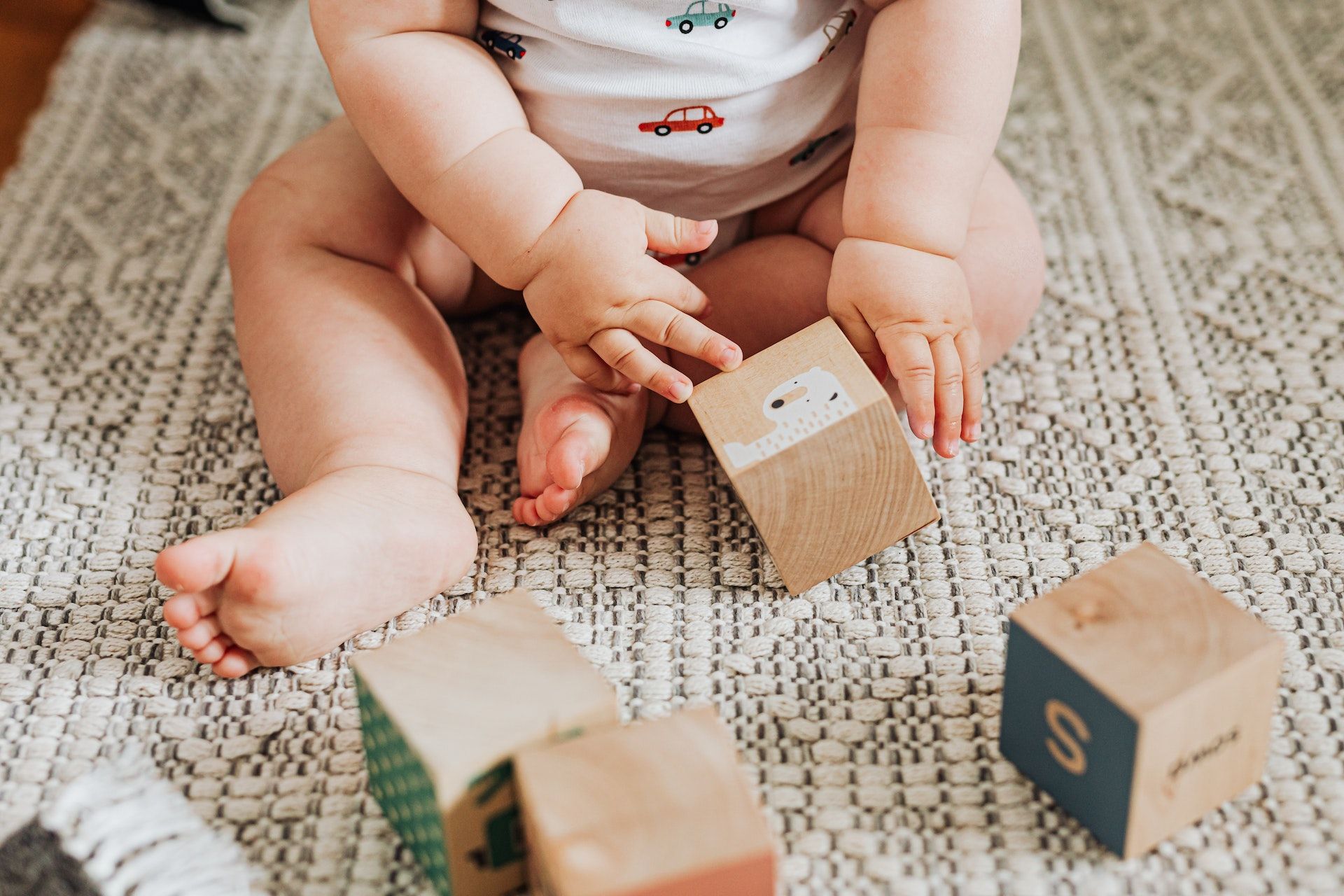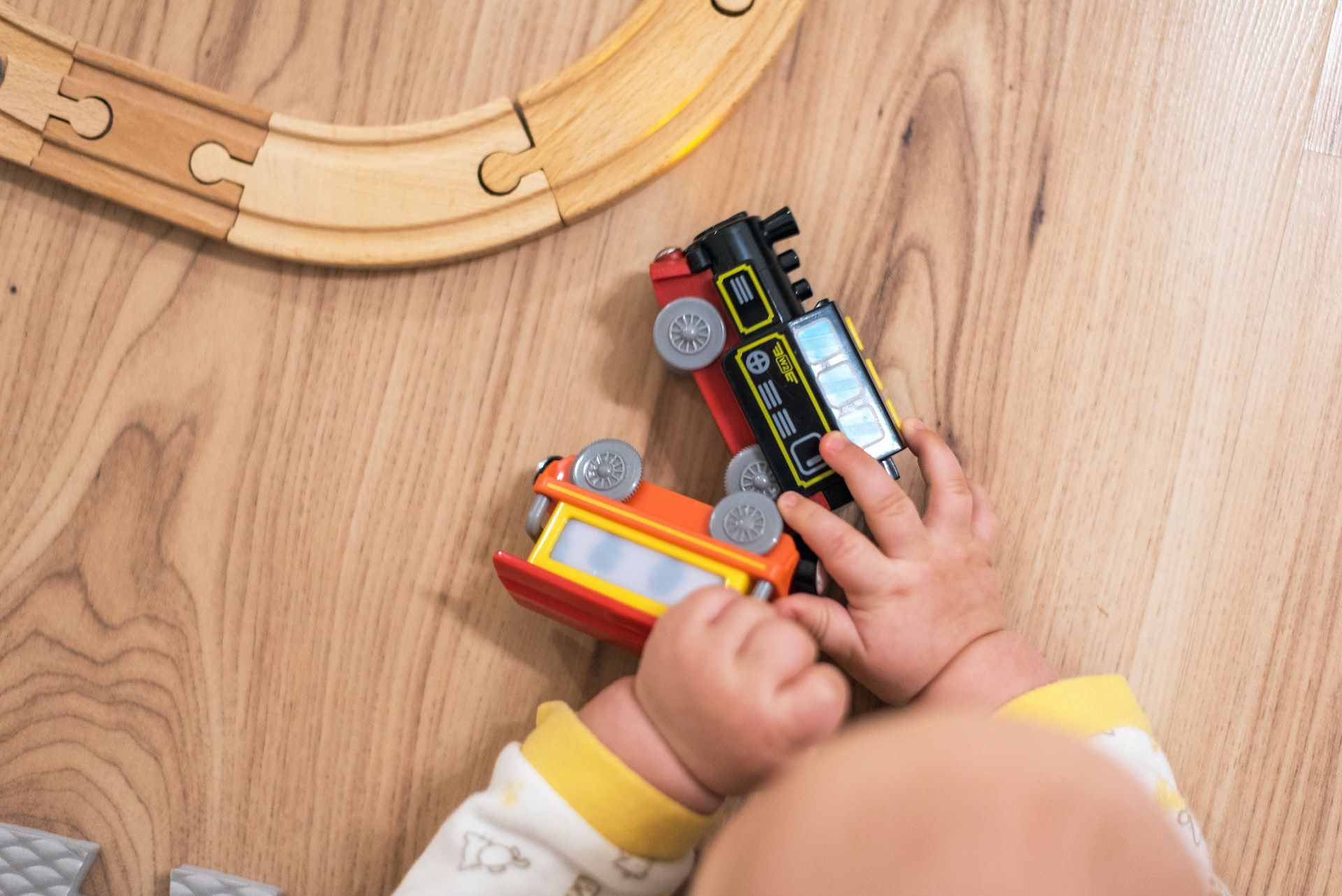How to Help Your Child Develop Fine Motor Skills
5 min read
Last Modified 30 May 2025 First Added 13 July 2023

Gross motor skills involve larger movements that engage the entire body such as jumping, hopping, running, or dancing the Macarena. These larger muscle groups allow babies to sit up, crawl and eventually walk.
On the other hand, fine motor skills involve small, intricate movements that rely on finger dexterity control and precision. This smaller muscle group is within your child’s hands, fingers, and wrists.
Think of the difference between dancing the Flamenco to playing the piano with grace. That is the difference between gross motor skills and fine motor skills.
Examples of fine motor skills:

These small movements hold great significance in your child’s everyday life.
Fine motor skills become the backbone of many essential activities your child will encounter in their life, whether at 6 months old, 5 or 21 years old. From buttoning their favourite superhero or princess shirt to holding a pencil to brushing their teeth!
Fine motor skills build the foundation for many other developments, such as hand-eye coordination skills, gross motor skills and future independence. We recommend having a look at learning toys that will aid your little one’s development.
The ultimate baby finger move… the Pincer Grip!
This movement allows your child to unleash their incredible grip by picking up small objects using only their thumb and index finger.
It’s perfect for grabbing small toys, puzzle pieces and even that pesky Lego piece that’s been hiding under the couch for days.
Have a look at toys to help develop your child’s pincer grip.

Embrace the artist within your child by providing a blank canvas with a selection of paint, crayons, pencils and paintbrushes and watch as your child’s inner Picasso inspires you. Drawing and painting lines, dots and shapes enable your child to develop their fine motor skills, precision, control, and self-expression.
Encourage your little explorer to squish, squeeze, and mould dough. This tactile, fun activity improves finger and hand strength whilst enhancing their hand-eye coordination skills. Play-Doh grants them the power of enjoyment and creativity whilst developing key muscles.
Introduce building blocks that are colourful and stackable. Watch as your child tries to stack these blocks and identify the colour, shape, or image displayed on the blocks. There are many blocks which are full of different shapes and animals which are perfect for sensory stimulation, and hand-eye coordination and encourage early number recognition.

Developing your little one’s fine motor skills is essential in the early years. These skills can be developed using a variety of tools and toys ranging from sensory toys to wooden puzzles for toddlers! Here we break down the recommended toys by your child’s age.
1. Early Learning Centre Wooden Twisty Rainbow Ring
This Wooden Twisty Rainbow Ring is a fine motor skills superstar, challenging your little one to twist, turn and explore the rainbow arch with their tiny fingers.
Engage your child with a toy that also champions sustainability and sensory exploration. From smooth textures to eye-catching colours, this Rainbow Ring creates a sensory wonderland here to help your child explore, learn, and grow.
2. Early Learning Centre Wooden Teether
This oh-so-chewable Wooden Teether toy is a fantastic option for fine motor skills development, engaging your child’s hands and mouth.
Crafted with love and adherence to safety standards, this sustainable teether allows your little one to sink their gums into the toy to soothe sore gums whilst learning how to grasp onto this teething treasure, enhancing their pincer grip and fine motor skills.
3. Early Learning Centre Nesting Eggs
Your child will love the challenge of stacking these Early Learning Centre Nesting Eggs, exploring the different sizes, and refining their hand-eye coordination as they nest and un-nest this egg-citing toy. It’s a shell-abration of skill-building and entertainment to keep your little one engaged.
4. Early Learning Centre Pop-Up Jungle Animals
This is a fantastic way to deepen your child’s fine motor skills as they press, twist and watch these adorable jungle animals pop up and down. Featuring vibrant colours, delightful sounds, and exciting movements, it is an interactive safari that will engage your little explorer whilst strengthening their finger dexterity and control.
5. Early Learning Centre Wooden Glockenspiel
Have you tried a wooden glockenspiel before? This musical marvel is not only a source of fun but also a fantastic tool to improve your child’s learning skills. As they drum the colourful chunky keys with the included mallet, their hand-eye coordination, finger strength, and precision will be put to the test.
Watch your little one’s musical talents flourish alongside their wrist and finger dexterity, unlocking their inner musician.
The key to success in fine motor skills development is the ability to create a playful and supportive environment where your little one can explore and practice their small muscle movements within their fingers, hands, and wrists.
Remember to have fun with everyday tasks that can improve your child’s fine motor skills such as playing with small toys, letting your child help with cooking and baking, playing with water activities, or just organising and cleaning up.
If you are looking for more toys to help build your child’s learning skills, have a look at our toy range that assist development.
To read our disclaimers, please click here.